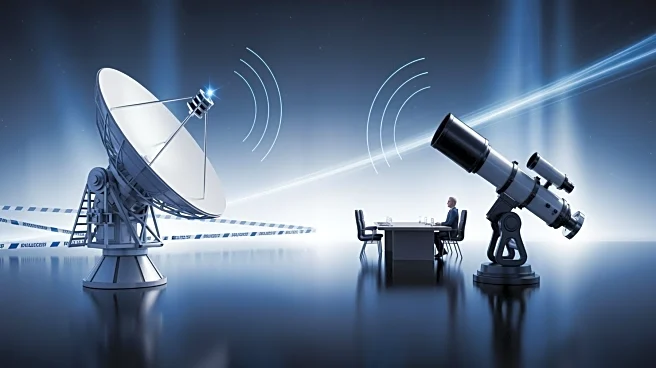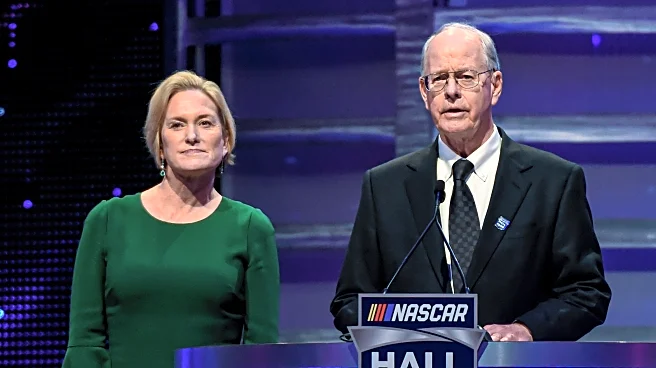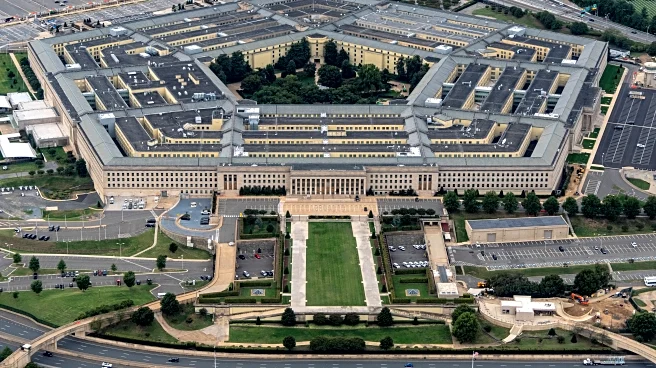What's Happening?
A recent debate hosted by The Aerospace Corporation and George Washington University’s Space Policy Institute focused on the Wolf Amendment, which restricts NASA and OSTP from bilateral cooperation with China. The amendment, enacted in 2011, aims to prevent
collaboration with Chinese space agencies due to national security concerns. Participants in the debate included Dean Cheng from the Potomac Institute for Policy Studies, who argued for maintaining the amendment, citing transparency issues and cyber threats from China. Conversely, Dan Hart from the Atlantic Council advocated for repealing the amendment, suggesting it is redundant and hinders potential diplomatic engagement through space cooperation.
Why It's Important?
The debate over the Wolf Amendment is crucial as it addresses the broader implications of U.S.-China relations in space exploration. Maintaining the amendment reflects ongoing security concerns, while repealing it could foster scientific collaboration and diplomatic dialogue. The outcome of this debate could influence future policy decisions regarding international space cooperation and impact the U.S. space industry's ability to engage with global partners. As space becomes an increasingly strategic domain, the U.S. must balance security interests with opportunities for collaboration.
What's Next?
While the debate has raised important questions, there is currently no indication that Congress will reconsider the Wolf Amendment. Space committee leaders in both the House and Senate continue to support the amendment, and legislative priorities are focused on other pressing issues, such as budget approvals to prevent government shutdowns. The discussion may remain within think-tank circles unless significant shifts in political or diplomatic landscapes occur.
















